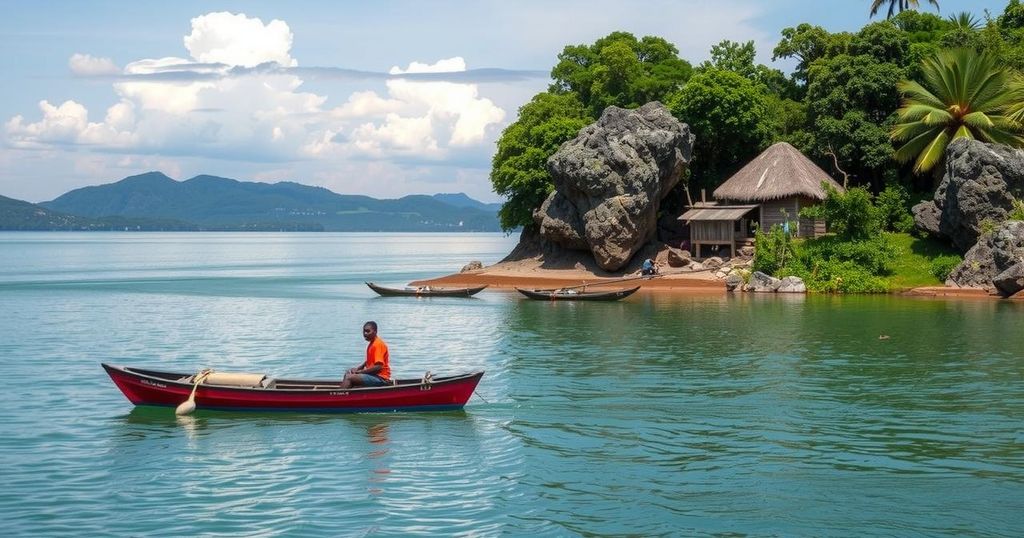Lake Malawi Dispute: An Exploration of Sovereignty Between Malawi and Tanzania

Malawi and Tanzania are in dispute over Lake Malawi, with Malawi asserting ownership based on a 1890 treaty, while Tanzania insists on a median line boundary. The dispute affects regional stability and resource control, with ongoing diplomatic efforts failing to yield a resolution. Both nations’ claims reflect the challenges of harmonizing historical treaties with modern international law, highlighting broader issues of sovereignty and cooperation.
The ongoing territorial dispute between Malawi and Tanzania over Lake Malawi continues to exacerbate tensions between the two countries. At the heart of this contention lies the interpretation of historical treaties and international law that dictate lake ownership. While Malawi claims sovereignty over the entirety of Lake Malawi based on the Anglo-German Treaty of 1890, Tanzania counters that the boundary should be established along the median line of the lake in accordance with contemporary international norms. This disagreement not only threatens regional stability but also jeopardizes the potential economic benefits associated with the lake, which is believed to harbor significant natural resources.
Malawi firmly positions its argument based on the provisions of the Anglo-German Treaty, asserting that the boundary lies along the eastern shoreline of the lake, thus encompassing the entire body of water within its territory. Furthermore, Malawi seeks to bolster its claim by referencing agreements with Portuguese colonial powers, insisting that these arrangements affirm its sovereignty over Lake Malawi. In contrast, Tanzania argues that a median line designation is more equitable and aligns with international practices regarding shared water bodies, as exemplified by its southern boundary with Mozambique.
The implications of this ongoing dispute extend beyond national interests as Lake Malawi serves as a vital resource for millions of people, providing essential water, food, and livelihoods. Moreover, the lake is believed to be rich in oil and gas reserves, which significantly raises the stakes for both nations. Efforts to mediate the dispute have seen involvement from various diplomatic sources, including the African Union; however, reconciliation remains elusive as both parties maintain steadfast positions.
In conclusion, the dispute over Lake Malawi epitomizes the challenges faced by nations in navigating historical agreements amidst modern legal frameworks. The confrontation underscores broader issues of sovereignty, resource management, and the necessity for regional cooperation. Until a resolution is achieved, the tensions surrounding Lake Malawi will likely continue to affect diplomatic relations between Malawi and Tanzania, impacting not only the two nations but the entire region.
The boundary dispute between Malawi and Tanzania regarding Lake Malawi, also recognized as Lake Nyasa by Tanzania, is deeply entrenched in historical complexities and contrasting legal interpretations. Originating from treaties established during colonial times, this disagreement reflects broader themes of colonial legacy and the difficulty of adapting historical agreements to contemporary international standards. The lake itself, a crucial lifeline for the surrounding populations, is also a region of potential wealth due to its untapped natural resources, thereby increasing the stakes of the dispute.
In summary, the territorial dispute between Malawi and Tanzania over Lake Malawi is rooted in historical treaties and modern interpretations of international law. With both nations holding firm to their claims, the dispute exemplifies the difficulties in reconciling historical agreements with present-day practices. The economic implications of the lake’s resources further complicate the situation, emphasizing the urgent need for a diplomatic resolution that addresses both historical rights and contemporary resource management concerns.
Original Source: malawi24.com







